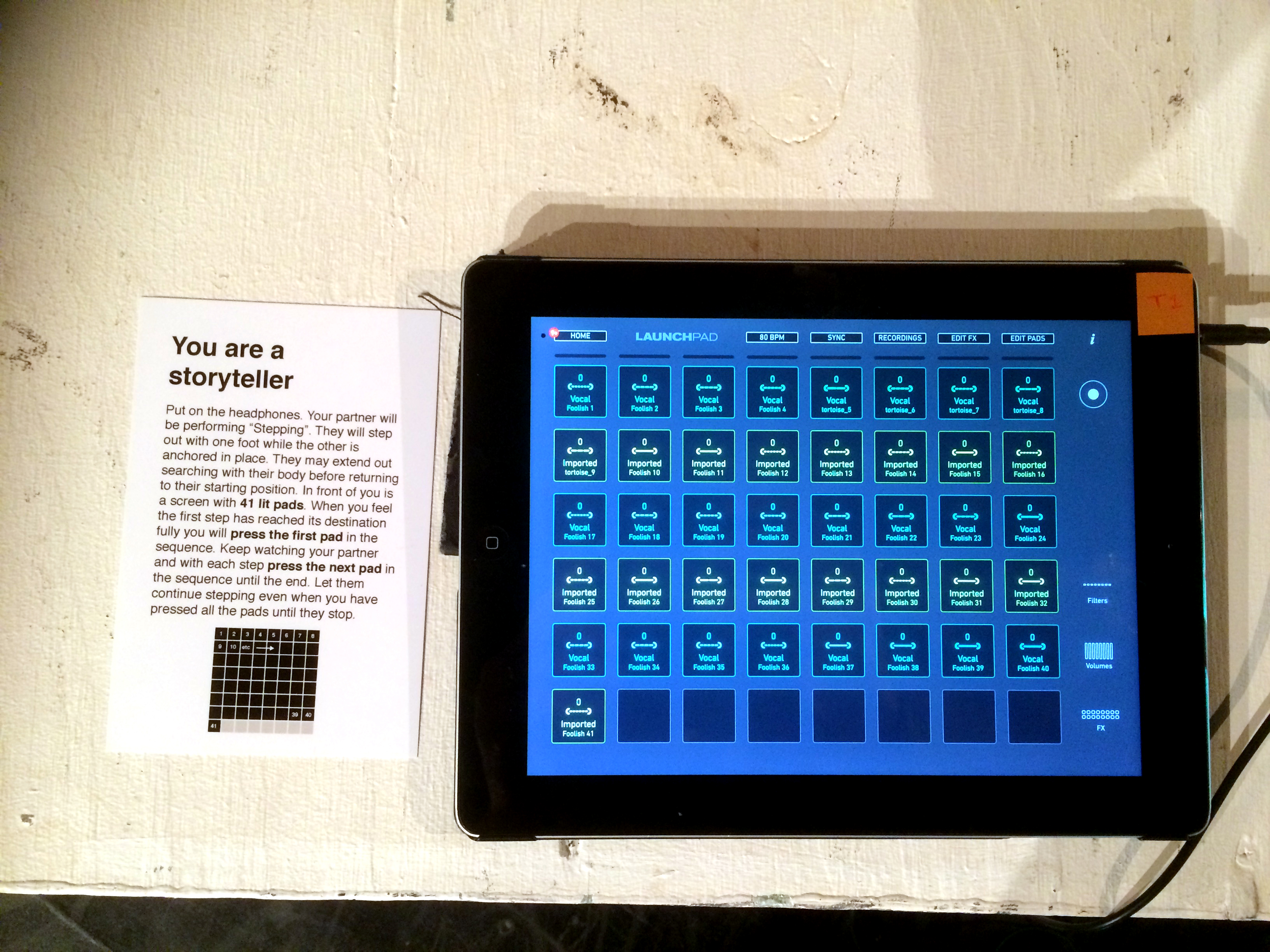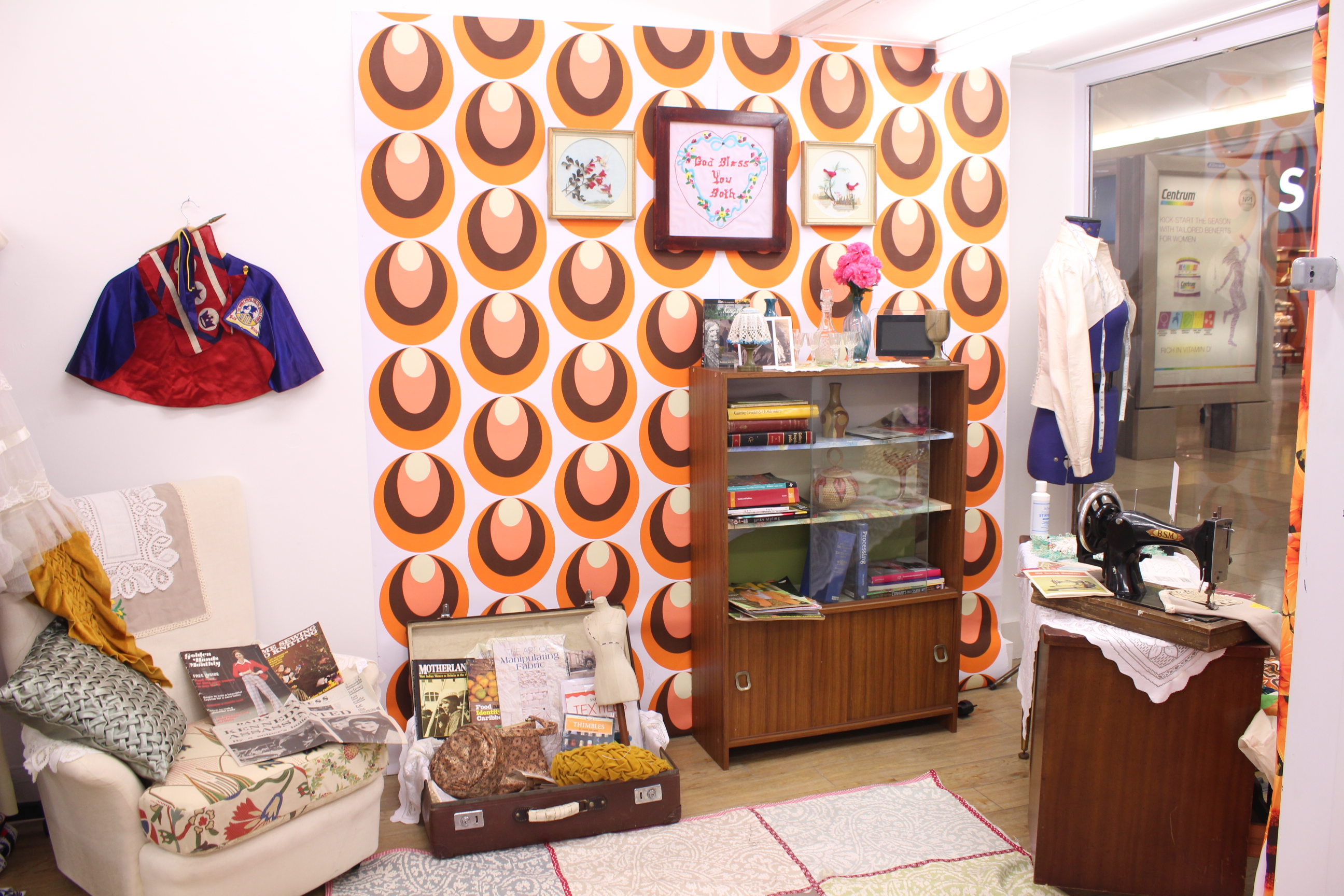PhD Research
Article
Current PhD research taking place in the Design department:
Katarina Dimitrijevic
Thesis title: Visualising Plastic Ocean Pollution: Designing Waste Ontologies
Supervised by Mathilda Tham
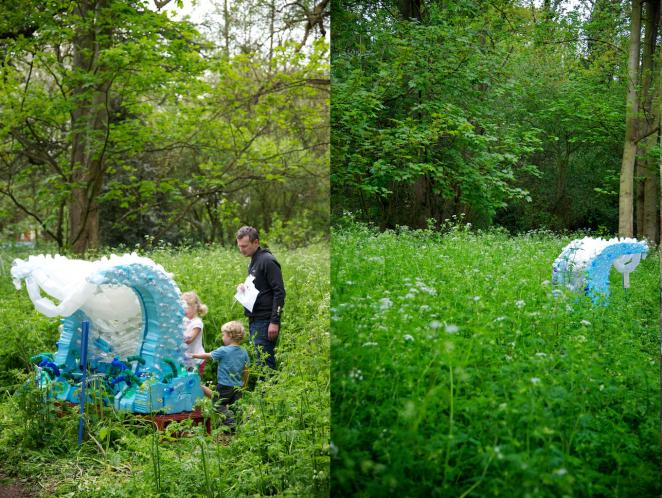
My PhD is a self-reflective practice-led research, creating a research to mobilise fragmented insights around the general public perception and individual relations towards plastic disposal and re-use in UK. Research praxis, KraalD, aims to engage self, things and others in promoting plastic minimization of London's future landfill. As my practice is embedded in a social narrative; public exposition and engagement is essential, both for generating insights from a multitude of stakeholders and for further successful dissemination of this research. The manifesto I operate from, which was formulated during my MRes in Design at Goldsmiths University, Designedisposal by KraalD (Dimitrijevic, 2001-2013) strives to synergize design activism, designedisposal aesthetics, craft making, public exposition and engagement; to facilitate rather than dictate, using the Designtransposal workshop, exhibition and installation as the research methods. This thesis will represent a depository of the speculative, conceptual, ontological and materiality beliefs and explorations of my craft activism with plastic disposal, through do-it-yourself (DIY) and do-it-with-others (DIWO) technologies. Self-incepted in 2011, KraalD, the design praxis supporting material change, strives in a sporadic mode to socially probe, interact and temporarily negotiate micro spaces of resistance, in order to gain insights for future strategies, scenarios and speculative vision.
AHRC Design Star funded.
Nicola Gray
Thesis title: Design Graduates in Transition: first role as a graduate in a design agency
Supervised by Kay Stables
The research explores the process of graduate transition from higher education into the design industry in the United Kingdom. Her work focuses on identifying the processes of learning that occur during the first roles for graduates and in conjunction to determine how work-based learning is supported and developed by design agencies. During the course of her PhD, Nicola will be exploring the two interrelated aspects of her research and aims to ascertain why it can be a difficult time for graduates during the transition period into design agencies and how design agencies can facilitate, support and develop workplace learning and early career development for recent design graduates.
Tom Keene
Thesis title: The housing database made visible: An artist and activist-led investigation into the relational machine, aspiration, and urban regeneration
An artist and activist-led PhD research project that explores how relational databases are complicit in the displacement of communities and demolition of social housing in the UK.
Through acts of making, programming, writing, and activism, the project explores the technical, political, historical, and intrapersonal entanglements of governmental databases within processes of urban regeneration.
The project is focused on and contributes to, a live activist campaign on Cressingham Gardens Estate in Southwest London which is under threat of demolition by Lambeth Borough Council.
Supervised by Alex Wilkie and Graham Harwood (Department of Cultural Studies).
AHRC Design Star funded.
Sarah Pennington
Thesis title: Curating issues of concern: mediating critically engaged design
Supervised by Alex Wilkie and Michael Guggenheim (Department of Sociology)
AHRC Design Star funded.
Tobias Revell
Thesis title: Mythologies of Connected Objects: Designing animate things
Supervised by Matt Ward

The project studies how design responds to and reinforces narratives of what connected, smart, networked devices actually are. Objects like smart watches and phones, robot vacuum cleaners, connected toys and autonomous vehicles exist in a networked across multiple times and spaces and have the ability to display apparent agency and autonomy. Despite this wholly new type of object, they’re still treated as and designed as their anachronistic selves, black boxing the true nature of their functionality and often purpose. This project uses critical techniques to taxonomies and challenge the politics of a design vocabulary that fails to respond adequately to the tenicological landscape.
Scott Robinson
Thesis title: Locating Stories: Designing participatory, locative and embodied experiences with people, objects and sounds.
Supervised by Tobie Kerridge and Roberto Feo
My practice-based PhD explores how simple and repeatable interactions with sounds, objects, stories and technology can be used in the design of playful enactive spaces to enhance locative audio storytelling and build emotional and embodied connections with others in a variety of public platforms. Locative audio storytelling usually refers to experiences such as museum tours or urban soundwalks where users can listen to content site-specifically where location refers to the geographical position of the user mediated through tools and technology. What if instead, audio could be located in more embodied ways, with or within specific actions or gestures? How might physical actions of stepping towards or turning around be responded to with audio? How could physical, spatial and rhythmical bodily interactions change the design, content and experience of locative audio storytelling? I investigate the complex relationship between the agency of embodied prototyping and its mediating effect on the experiences found in rendered output (installations and workshops) particularly when enactive spaces are created through a co-collaboration between participants. I explore the role of empathy and power as the interplay of sounds, people, spaces and objects is observed. Finally, and considering the unique characteristics of locative storytelling, I raise the question of responsibility, our emotional identification and our connectedness as a society.
AHRC Design Star funded.
Rose Sinclair
Thesis title: Dorcas Stories (Practice-led design research)
Supervised by Dr Mathilda Tham and John Backwell
Rose Sinclair is Convenor of the BA Design, Creativity and Learning and Lecturer in the Department of Design.
Across 2016, and 2017 Rose undertook a range of highly successful engagement activities as part of her practice led research into the development of the Dorcas Clubs and Societies set up by Caribbean women on their arrival in the UK in the 1950s and 60s, the aim of which was exploring black women’s crafting and making practices through female textile networks, alongside the use of such networks as a catalyst for social and economic change. Rose’s work uses life stories and oral histories and the archive to unpick how the textiles created by these networks embody both material culture and diasporic tales. It asks how understanding this history provides new ways of thinking about networks and their place in textile design and innovation, as well as the rise of ‘safe making spaces’.
Rose’s practice based research is made up of various public engagement events, which include installations in retail spaces such as Lewisham Shopping Centre, and museum spaces such as the Bruce Castle Museum, the Victoria & Albert Museum, and the National Archives at Kew.
Mike Thompson
Thesis title: The fat made us do it: Deciphering the logic of Fatberg engagement events
Supervised by Tobie Kerridge and Bill Gaver
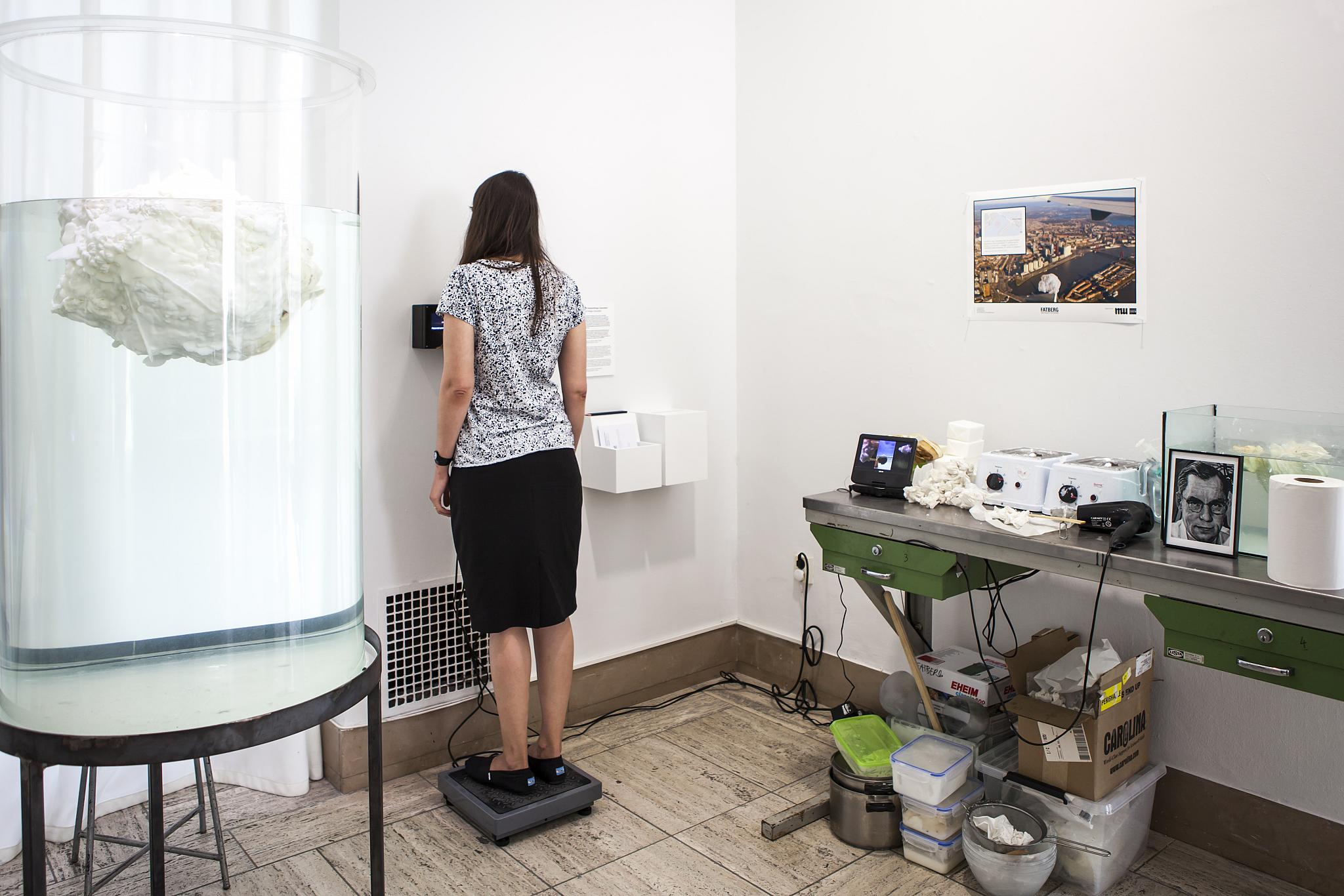
David Chatting
Thesis title: A Network of One’s Own: struggles to domesticate the Internet
Supervised by William Gaver, Andy Boucher and Alex Wilkie
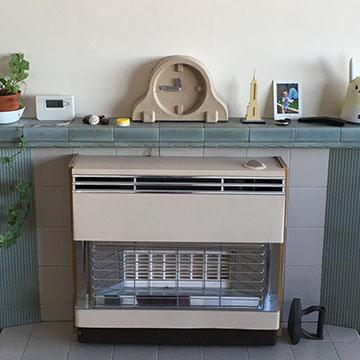
This thesis is a design research practice-led inquiry of the domesticated Internet. While often repeated ideals of home empathise its stability and harmony, its reality inevitably includes significant struggles and some trouble – both for the occupants, their stuff, and the building itself – with the world at large. Such an agonistic framing complicates the static and uncontested corporate smart home as the logical conclusion of the domesticated Internet, instead identifying the home as a site of unfolding alternatives. In response, this thesis develops some practical ways to design in and for such networked homes, described through practice and empirical studies.
AHRC Design Star funded.
Tom Critchley
Thesis Title: Humanitarian Infrastructuring
Supervisors: Tobie Kerridge and Liam Healy
I am researching developmental work in terms of STS engagements with infrastructuring. To do this I am looking at Zaatari Radio - a radio station in Zaatari Refugee Camp, Jordan and The Freedom Skatepark - a skatepark and youth centre in Kingston, Jamaica. I am interested in the participatory and collaborative nature of their design, construction and ongoing development, and what this means for the young people who engage with them.
I also research and write about skateboarding, urbanisation and DIY.
